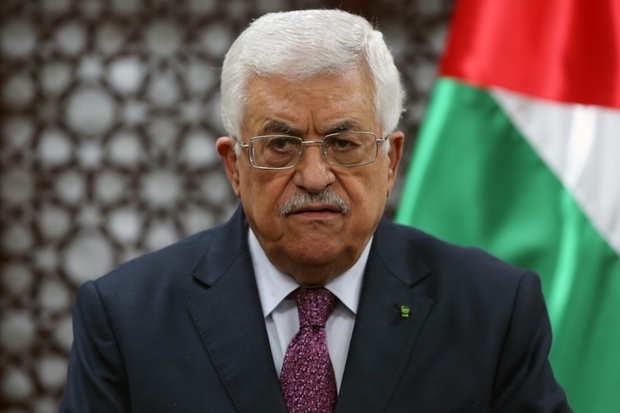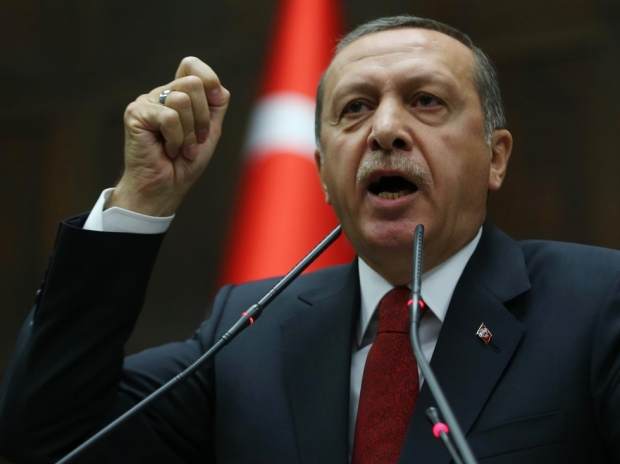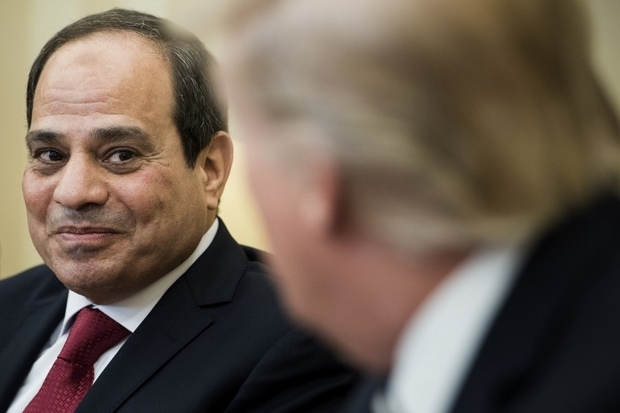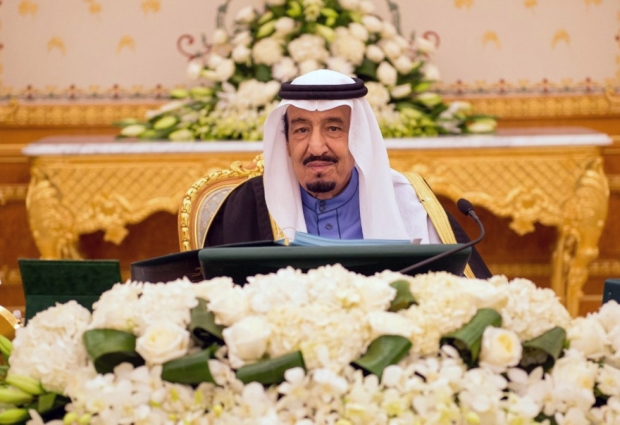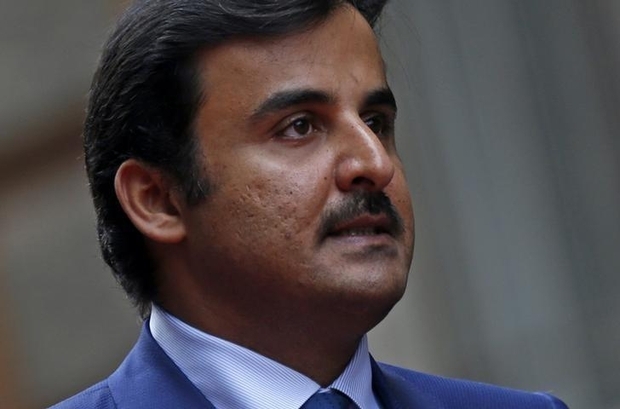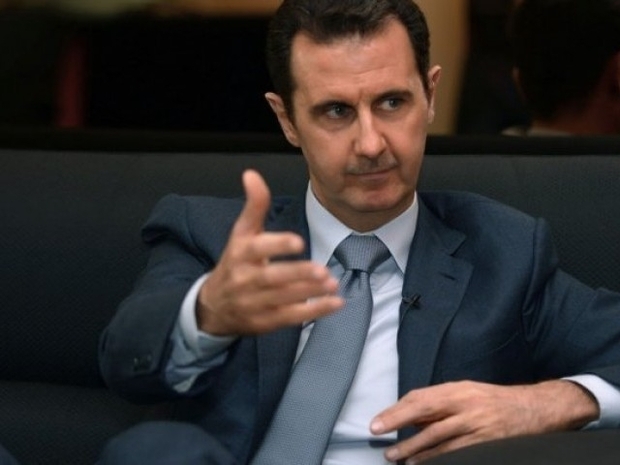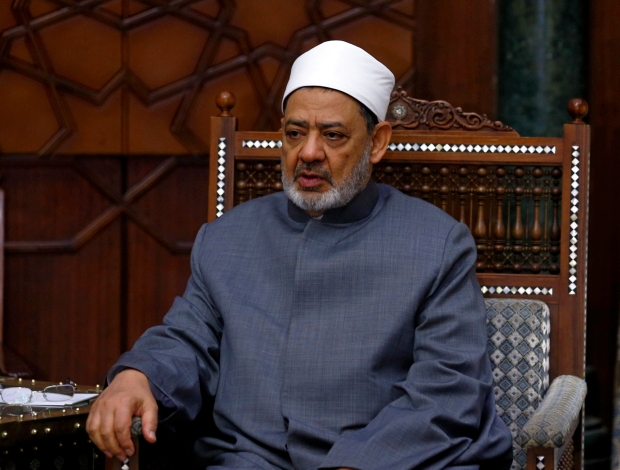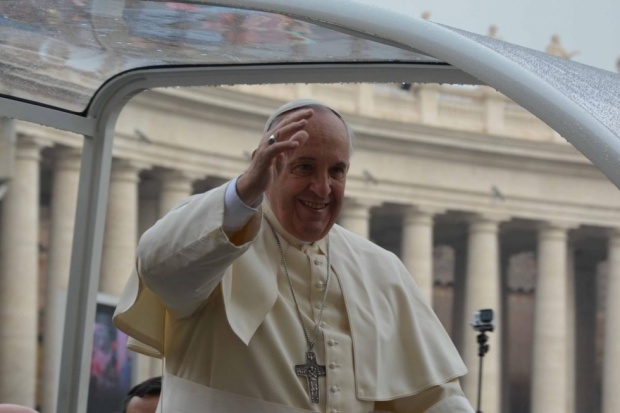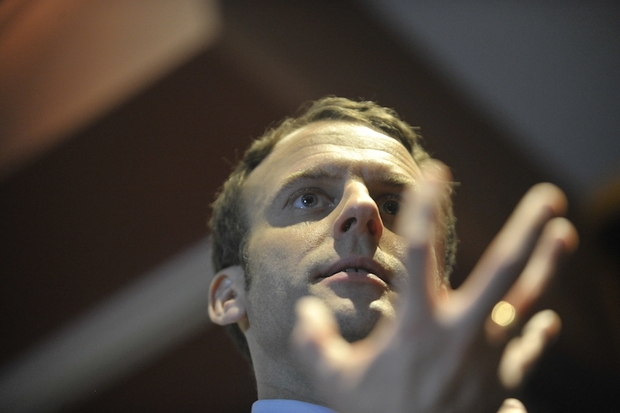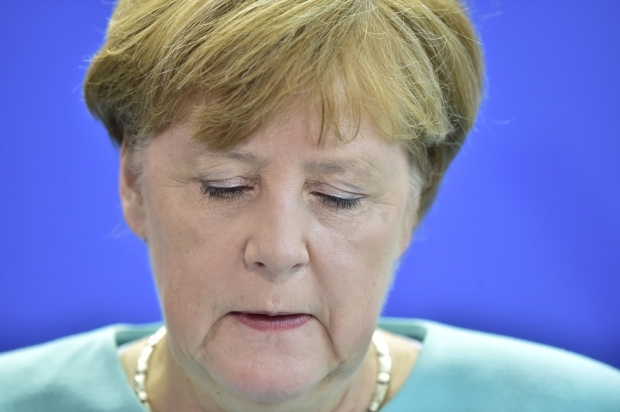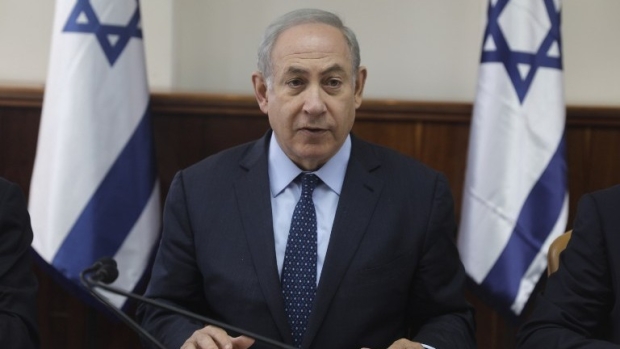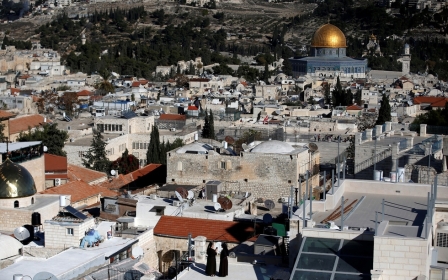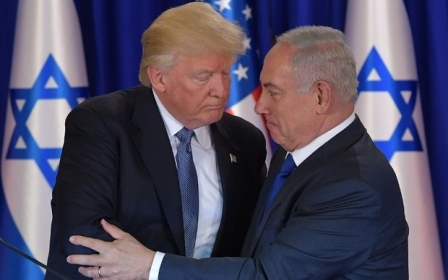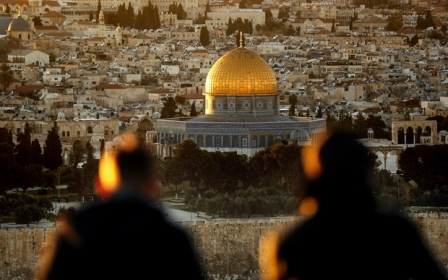Trump, Israel and Jerusalem: That international backlash in full
US President Donald Trump’s expected announcement of plans to move the US embassy in Israel to Jerusalem has whipped up a furore, with foreign leaders warning of regional upheaval and the collapse of Israeli-Palestinian peace efforts.
The international community considers East Jerusalem illegally occupied by Israel and all countries with a consular presence have their embassies in the coastal city of Tel Aviv.
A senior Trump administration official said the president would make the announcement on Wednesday from the White House, upending decades of careful US policy and ignoring dire warnings of a historic misstep that could trigger a surge of violence in the Middle East.
Here's what the world has had to say:
Palestine
During a call ahead of a speech by Trump on Wednesday, Mahmoud Abbas, the Palestinian president, warned his American counterpart of “dangerous consequences”.
Abbas told Trump that he would "not accept it" and warned that the president was "playing into the hands of extremism".
But Trump "just went on saying he had to do it", Shaath said.
Turkey
Ankara's reactions to Trump’s expected move was one of the strongest with President Recep Tayyip Erdogan warning on Tuesday that the status of Jerusalem is a "red line" for Muslims and could even prompt Turkey to cut ties with Israel.
The recognition will "throw the region and the world into a fire and it's not known when it will end", said Deputy Prime Minister Bekir Bozdag on Twitter, adding the move was a "great disaster" that would lead the way to "turmoil, chaos and clashes" and could produce "unpleasant things that we have not foreseen".
Bozdag added that the recognition would "destroy the peace process", saying that the issue of Jerusalem was the key to peace in the Middle East and the world.
At the same time, the foreign minister, Mevlut Cavusoglu, said the move was a "mistake" that "will not bring stability and peace but rather chaos and instability".
Asked whether he would bring the issue up with US Secretary of State Rex Tillerson, the minister said: "I have already told him and I will tell him again."
Erdogan - who regards himself as a champion of the Palestinian cause - is due to hold talks later in Ankara with Jordanian King Abdullah II who is also a strong opponent of the move.
Jordan
Jordan’s King Abdullah told Trump on Tuesday that any move by the US to declare Jerusalem the capital of Israel would have “dangerous repercussions” for regional stability, a Jordanian palace statement said.
He said that the “decision will have serious implications that will undermine efforts to resume the peace process and will provoke Muslims and Christians alike”.
Jordanian officials are worried the move could trigger violence in the Palestinian territories and a spillover into Jordan, a country where many people are descendants of Palestinian refugees whose families left after the creation of Israel in 1948.
Furthermore, King Abdullah’s Hashemite dynasty is the custodian of the Muslim holy sites in Jerusalem, making Amman sensitive to any changes of status of the disputed city.
The monarch warned of the repercussions of Trump’s expected move in talks last week in Washington with top administration officials.
Egypt
President Abdel Fattah al-Sisi, one of Trump’s closest allies in the Middle East, urged the US president to be cautious, his office said on Tuesday.
Sisi also confirmed “Egypt’s consistent position on maintaining the legal status of Jerusalem within the framework of international standards and relevant United Nations resolutions”, he said.
Saudi Arabia
In Riyadh, the Saudi Press Agency said King Salman bin Abdul Aziz warned Trump on Tuesday "that such a dangerous step” could rile Muslims around the world.
Qatar
Qatar's emir has said his country will reject the US decision to recognise Jerusalem as the capital of Israel.
The emir stressed the religious and political importance of Jerusalem to Arabs, Muslims and the whole world.
UAE
Ahmed Abdul Rahman al-Jarman, assistant minister for human rights and international law at the Ministry of Foreign Affairs and International Cooperation, expressed the UAE’s “utmost and deep concern” in a statement published on Tuesday.
Jarman explained that the planned step is a “major breach of the principle of not influencing the negotiations to find a solution to the Palestinian issue” and “would represent a fundamental change and unjustified bias in the neutral stance of the US”.
Jarman also warned the move will have grave consequences, and will further complicate the Palestinian-Israeli conflict and obstruct the current efforts to revive the peace process.
The minister affirmed the UAE's support for the people of Palestine to attain their legitimate rights and establish their Palestinian state and its capital in East Jerusalem.
Syria
The Syrian government warned on Wednesday of the "dangerous consequences" of Trump's plan to recognise Jerusalem as the capital of Israel.
"Syria condemns in the strongest possible terms the US president's move to transfer the US embassy to occupied Jerusalem and recognise Jerusalem as the capital of the Israeli occupation," the foreign ministry said.
"The US president and his regional allies will bear responsibility for this decision's dangerous consequences," the official said while pointing a finger at Saudi Arabia.
"The US president wouldn't have dared take such an initiative without an alliance with Arab regimes that plotted and continue to plot against Syria and the Palestinian cause."
Al-Azhar
The Grand Imam of al-Azhar, the highest seat of learning in the Sunni Muslim world, has said US plans to relocate its Israeli embassy to Jerusalem will "open the floodgates of hell to the West".
"If the door is opened for foreign embassies to move to Jerusalem, the floodgates of hell will be opened to the West more so than to the East," he said.
The grand imam said the potential move to officially recognise the holy city as Israel's capital would "fuel anger among all Muslims and threaten world peace".
The Vatican
Pope Francis on Wednesday defended the "status quo" of Jerusalem, hours ahead of Trump's announcement.
The Argentine pontiff's call came a day after he spoke by phone with Palestinian President Mahmoud Abbas, the Vatican said without elaborating.
"Jerusalem is a unique city, sacred for Jews, Christians and Muslims," he said, adding that it was home to sites deemed holy by followers of the three major monotheistic faiths.
Jerusalem, the pope said, holds a "special vocation for peace".
"I pray to God that this identity is preserved and reinforced, for the sake of the Holy Land, the Middle East and the whole world, and that wisdom and prudence prevail," he said.
The pontiff added that maintaining the status quo was important "in order to avoid adding new elements of tension to an already volatile world that is wracked by so many cruel conflicts".
The European Union
The European Union’s top diplomat, Federica Mogherini, said on Tuesday that “any action that would undermine” peace efforts to create two separate states for the Israelis and the Palestinians “must absolutely be avoided”.
“A way must be found through negotiations to resolve the status of Jerusalem as the future capital of both states,” Mogherini said, stressing the EU’s support for unlocking meaningful peace talks.
She said the EU’s 28 foreign ministers will jointly discuss the matter with Israeli Prime Minister Benjamin Netanyahu in Brussels next Monday, to be followed by a similar meeting with Palestinian President Mahmoud Abbas early next year.
France
French President Emmanuel Macron was among the first state officials to comment on the potential move, telling Trump on Monday that he was worried about the possibility that the US could unilaterally recognise Jerusalem as the capital of Israel, Macron’s office said in a statement.
“Macron reaffirmed that the question of Jerusalem’s status had to be dealt with in the framework of peace negotiations between Israelis and Palestinians, with the aim in particular to establish two countries, Israel and Palestine, living in peace and security side by side with Jerusalem as capital.”
Germany
Germany's Foreign Minister Sigmar Gabriel on Tuesday warned against a unilateral American recognition of Jerusalem as the Israeli capital.
"There are signs that America is going to recognise Jerusalem as the capital of Israel, without having reached an agreement with Europe on this subject, we all know what the repercussions to that may be," he said in a speech.
"The German stance on this question remains unchanged: The solution to the Jerusalem question can only be found through direct contacts between the two sides. Anything that could exacerbate the crisis is counterproductive," Gabriel clarified in a statement.
Gabriel went on to add that "in any case Germany can't afford to wait for decisions from Washington or just [wait until they are made] and then comment on them. We need first and foremost to describe our positions and in some cases - sometimes vis a vis our allies - spell out where the limits of our solidarity are."
Russia
The Kremlin said on Wednesday that Russia was concerned that the conflict between Israel and the Palestinian authorities could be aggravated further by Trump’s plans.
“However, we would not discuss the decisions which have not been taken yet,” Kremlin spokesman Dmitry Peskov told a conference call with reporters.
Meanwhile, in Israel...
The only welcome to Trump's announcement came from Israel with Prime Minister Benjamin Netanyahu announcing on Wednesday that Israel's "historical and national identity is receiving recognition, especially today".
Earlier on Wednesday, in his first public comments since the White House confirmed Trump will make the Jerusalem announcement, Netanyahu avoided any mention of the decision. Instead, the prime minister focused his remarks on the Iranian threat to the region on Wednesday.
Middle East Eye propose une couverture et une analyse indépendantes et incomparables du Moyen-Orient, de l’Afrique du Nord et d’autres régions du monde. Pour en savoir plus sur la reprise de ce contenu et les frais qui s’appliquent, veuillez remplir ce formulaire [en anglais]. Pour en savoir plus sur MEE, cliquez ici [en anglais].


